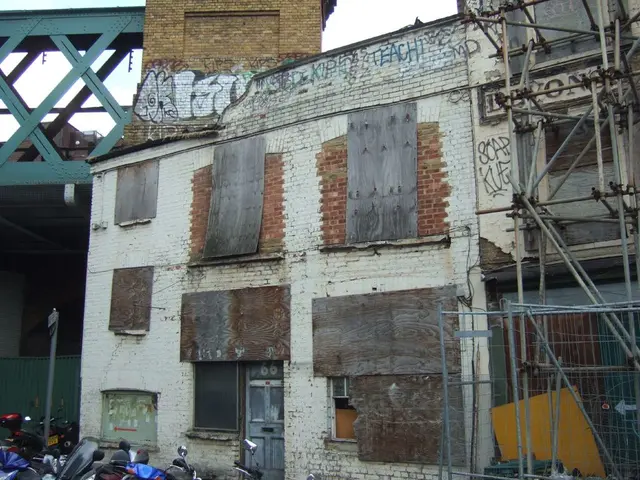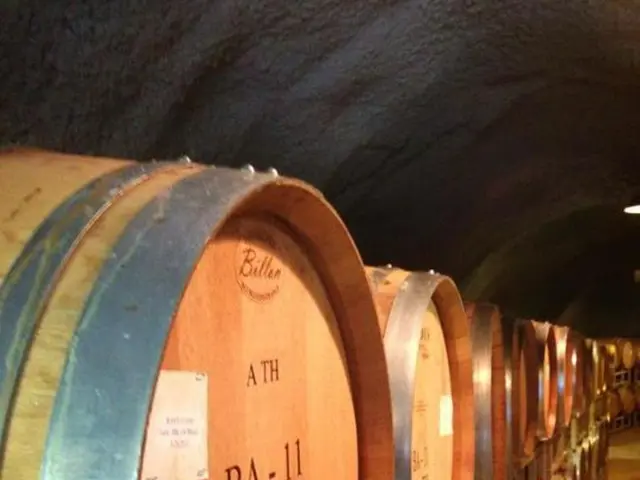Energy Transition's Fast Lane: Upper Austria Accelerates in Energy Shift
New and Exciting Venture in Upper Austria: The "Eco-Heat Expressway"
Upper Austria is paving the way for a greener future with the introduction of the "Eco-Heat Expressway." This groundbreaking project aims to tap into industrial waste heat and streamline it into local district heating networks, bolstering the region's economy, securing jobs, and significantly speeding up decarbonization efforts.
Markus Achleitner, Provincial Councilor for Economics and Energy, shared his enthusiasm for the project during its unveiling earlier this week. The Eco-Heat Expressway is managed by the Energy Institute at JKU Linz and boasts a strong partnership of 28 industry, research, and energy supply players.
By repurposing previously untapped energy sources, Upper Austria aims to lessen its reliance on fossil fuel imports and prepare for a sustainable energy future. While the specific "Future Heat Highway" project isn't explicitly mentioned in official documents, several related endeavors in Upper Austria align with industrial waste heat utilization and decarbonization efforts.
For instance, AVL's brand new Tech Center in Steyr prioritizes sustainable mobility by employing waste heat recovery systems, large-scale solar installations, and a holistic approach to resource conservation. Another noteworthy stride is ASFINAG's energy vision, which seeks to establish a comprehensive e-charging infrastructure across the nation, with plans for full coverage by 2030 for cars and 2035 for trucks.
Upper Austria's renewable energy initiatives further support the direction taken by the Eco-Heat Expressway. Projects such as a 13 MW wind power initiative for nearby industrial sites and the recent commissioning of the Ovella residual flow turbine on the Inn River showcase advanced hydroelectric integration.
Although the exact "Heat Highway" isn't directly referenced, these initiatives collectively push Upper Austria towards a more sustainable industrial sector, by focusing on waste heat reuse, renewable energy expansion, and transportation electrification. To learn more about the named "Future Heat Highway," consultation of additional project documentation would undoubtedly prove enlightening.
- Markus Achleitner, the Provincial Councilor for Economic and Social Policy and Energy in Upper Austria, expressed excitement about the Eco-Heat Expressway project during its unveiling.
- The Energy Institute at JKU Linz manages the Eco-Heat Expressway, which comprises 28 industry, research, and energy supply partners.
- Apart from the Eco-Heat Expressway, Upper Austria is also working on the Future Heat Highway project, albeit not explicitly mentioned in official documents.
- AVL's Tech Center in Steyr, one of the related endeavors in Upper Austria, concentrates on sustainable mobility through waste heat recovery systems, solar installations, and resource conservation.
- ASFINAG, another player in this endeavor, aims to set up a complete e-charging infrastructure across the nation, with plans for full coverage by 2030 for cars and 2035 for trucks.
- Upper Austria's renewable energy initiatives, such as the 13 MW wind power project for industrial sites and the Ovella residual flow turbine on the Inn River, align with the goals of the Eco-Heat Expressway and cover areas like waste heat reuse, renewable energy expansion, and transportation electrification. To better understand the Future Heat Highway, further study of additional project documents would be beneficial.







